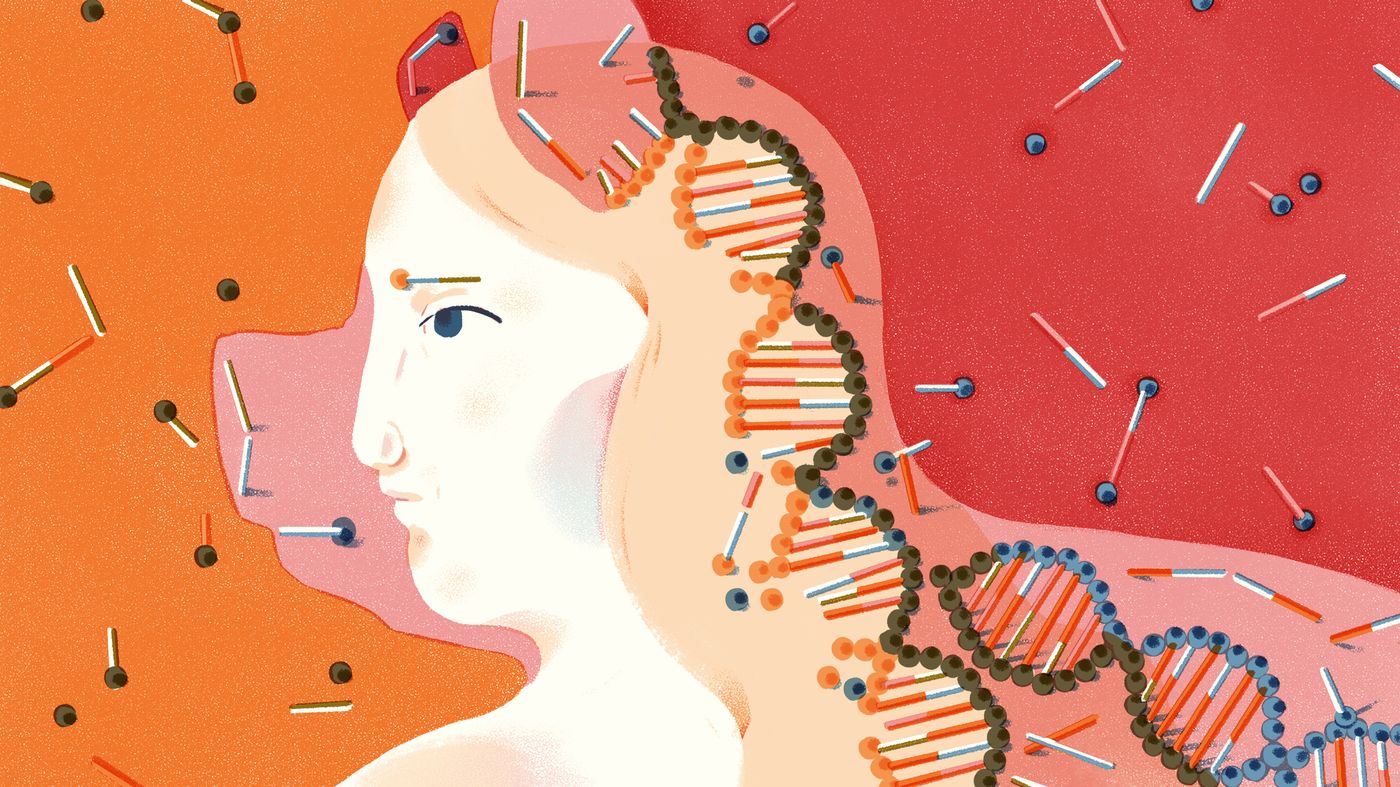Genetic testing makes its way into clinical practice
The NHS has rolled out a new pilot using pharmacogenomics to personalise medication prescription for patients. Contraception is up next.
• 4 min read

A breakthrough for pharmacogenomics
Could genetics guide our day-to-day choices to enhance our health? Could we use our genes to personalise our nutrition, fitness and medication plans? This may sound like something out of a sci-fi movie to some. However, we’re one step closer to this being reality!
We’re spotlighting an NHS pilot that launched testing for genetic predispositions before medication prescription. Pharmacogenomics (abbreviated "PGx" by researchers tired of the mouthful) is a field in which we look at how someone's genes (the personal information encoded in each cell) influence their response to medication. Pharmacogenomics in practice goes one step further and involves personalising medication prescriptions for individuals based on their genetics, a possibility we’re turning into reality here at Dama Health. We're especially excited as this NHS pilot marks the first time pharmacogenomics is being used in the clinical setting for prescriptions in the UK.
We might expect that medications work for everyone in a similar way and have the same effect. This is far from the case. How medications work in our bodies depend on many factors including how long the drug is in our blood before our bodies get rid of it and how efficiently the drug is processed, both of which dictate the onset, duration and intensity of the drug’s effect – called pharmacokinetics. In short, the same drug might work for one person and not another. Many reasons why a drug might work well or not can be traced back to individual genetics.
Pharmacogenomics is not yet widely used in clinical medicine but this approach is growing in popularity and looks to shift how we prescribe medications in the near future.
Widespread genetic testing arrives in the NHS
Recently, the first-ever NHS pilot programme for genetic testing before drug prescription was announced in four centres in northern England. This means clinicians will start using genetic testing before they prescribe certain types of medications. They’re beginning with antidepressants (to treat clinical depression), statins (to lower cholesterol levels), and proton pump inhibitors (to help with digestive symptoms).
As previously explained, genetic differences among patients can impact their response: there is no one-size-fits-all in mental health, heart disease and digestive conditions. This feasibility study is trying to account for these differences and develop a system where people would be able to receive the correct medicine (and the correct dosage) to maximise medication efficiency, while minimising side-effects. This initiative will likely expand to a national level if it proves successful.
Benefits for the patient and the system
This rollout follows a recent study that suggested that genetic testing prior to statin prescription could be highly cost-effective for healthcare systems. In this study, researchers followed a group of patients who were prescribed statins for 10 years. They found that an initial genetic test would have reduced costs associated with hospitalizations due to low efficiency statins. Not only would costs have been reduced but, importantly, a genetic test prior to prescription could have improved the overall patients’ quality of life.

Next up, contraception please!
As you may be aware if you have been following us for some time, Dama Health’s mission is to utilise the science of pharmacogenetics, alongside other vital information such as past medical history and personal preferences, to personalise contraception prescriptions. Contraceptives’ efficiency and side effects can be influenced by genetic predispositions. Common contraception side-effects like migraines and inflammatory bowel disease might be due to contraception not being personalised to the individual’s genetic risk. In more serious cases, non-personalised contraception can also pose life-threatening risks in patients with specific mutations, such as an increased risk of blood clotting, or increased risk of certain cancers.
This first-ever NHS pilot gives hope that genetic testing and personalised medicine approaches will become more accessible and widespread. The Dama Health team will be eagerly following this initiative in the following months, and we hope you are as impatient as we are!
- Wilkinson, E., & Connelly, D. (n.d.). GPs to start genetic testing patients before prescribing statins, antidepressants and PPIs. The Pharmaceutical Journal. Retrieved April 20, 2023
- M. Kiflen et al., “Cost-Effectiveness of Polygenic Risk Scores to Guide Statin Therapy for Cardiovascular Disease Prevention,” Circ Genom Precis Med, vol. 15, no. 5, pp. 386–395, Oct. 2022, doi: 10.1161/CIRCGEN.121.003423.
- LYNCH and A. PRICE, “The Effect of Cytochrome P450 Metabolism on Drug Response, Interactions, and Adverse Effects,” Am Fam Physician, vol. 76, no. 3, pp. 391–396, Aug. 2007, Accessed: Feb. 01, 2023. [Online].
- G. E. Tietjen and S. A. Collins, “Hypercoagulability and Migraine,” Headache: The Journal of Head and Face Pain, vol. 58, no. 1, pp. 173–183, Jan. 2018, doi: 10.1111/HEAD.13044.
- R. Ortizo, S. Y. Lee, E. T. Nguyen, M. M. Jamal, M. M. Bechtold, and D. L. Nguyen, “Exposure to oral contraceptives increases the risk for development of inflammatory bowel disease: a meta-analysis of case-controlled and cohort studies,” Eur J Gastroenterol Hepatol, vol. 29, no. 9, pp. 1064–1070, 2017
- E. F. W. van Vlijmen, S. Wiewel-Verschueren, T. B. M. Monster, and K. Meijer, “Combined oral contraceptives, thrombophilia and the risk of venous thromboembolism: a systematic review and meta-analysis,” J Thromb Haemost, vol. 14, no. 7, pp. 1393–1403, Jul. 2016
- D. Huber, S. Seitz, K. Kast, G. Emons, and O. Ortmann, “Use of oral contraceptives in BRCA mutation carriers and risk for ovarian and breast cancer: a systematic review,” Arch Gynecol Obstet, vol. 301, no. 4, p. 875, Apr. 2020
Medically reviewed by Dr.Paulina Cecula